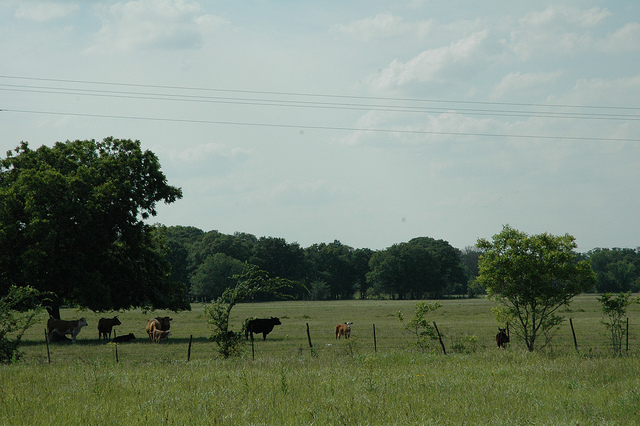UPDATE: 8/29/18 — Austin Court of Appeals has reversed the trial court decision and dismissed the case. The court did not reach the merits of the case–meaning the opinion did not discuss whether the landowners should have been granted party status, but instead focused solely on whether the trial court had subject matter jurisdiction. Finding it did not, the case was dismissed. [Read opinion here.]
An interesting legal question has arisen in Bastrop County recently that could have impacts on groundwater law and landowner rights across Texas.

TAMU Agrilife photo by Kathleen Phillips
Background
In 2013, Recharge Water (formerly End Op) applied for a permit from the Lost Pines Groundwater Conservation District (GCD) to withdraw 56,000 acre-feet of water per year from the Simsboro formation of the Carrizo-Wilcox Aquifer in Bastrop and Lee Counties. The company planned to export the water for sale in Hays, Travis, and Williamson Counties, although no specific buyer had been identified.
In response, water company Aqua Water sought party status to oppose the permit, as did four landowners who owned property in the area. Aqua Water did have competing wells in the same Aquifer, while the landowners did not. An administrative law judge denied the landowners’ request to challenge the permit because none of them owned private wells in the same aquifer as was proposed by Recharge Water’s permit.
Eventually, Aqua Water reached an agreement with Recharge Water and in 2016, the Lost Pines GCD issued a permit allowing Recharge Water to withdraw 46,000 acre-feet of groundwater from 14 wells in Lee and Bastrop Counties.
The four landowners filed suit in Bastrop County District Court claiming that the administrative law judge incorrectly denied them party status in the permit hearing. Eric Allmon, attorney for the landowners argued that a person does not need to be using groundwater in order for a water use permit application to have an impact on that person’s rights. “When they are draining water under these people’s property, they are impacting our available water, our proportionate share of groundwater from a common pool. To say they they must be using that water [in order to protest a permit] encourages waste.” Attorney Stacey Reese said that although any pumping affects the entire aquifer, plaintiffs had not shown any “particularized injury” such that they should be granted party status.
Trial Court Decision
In January 2018, state District Court Judge Carson Campbell issued an order siding with the landowners, holding that the GCD improperly excluded them from party status during the permitting process. As a result, the Lost Pines GCD’s decision to grant Recharge’s water permit was overturned because the landowners should have been able to participate as parties at the contested case hearing over the permit. Because of this, the court sent the case back to the Lost Pines GCD to conduct another permit hearing on Recharge Water’s permit application. [Read Order here.]
Both the Lost Pines Groundwater Conservation District and Recharge Water have appealed the trial court decision.
Why We Care?
This case raises an interesting issue with regard to property rights in groundwater: Does a landowner who Texas law makes clear also has a property interest in the water beneath his land, have the right to protest a permit request, or must the landowner show that he or she has an existing well in the same aquifer that could potentially be impacted? This is a critical question for GCDs and Texas landowners alike.












